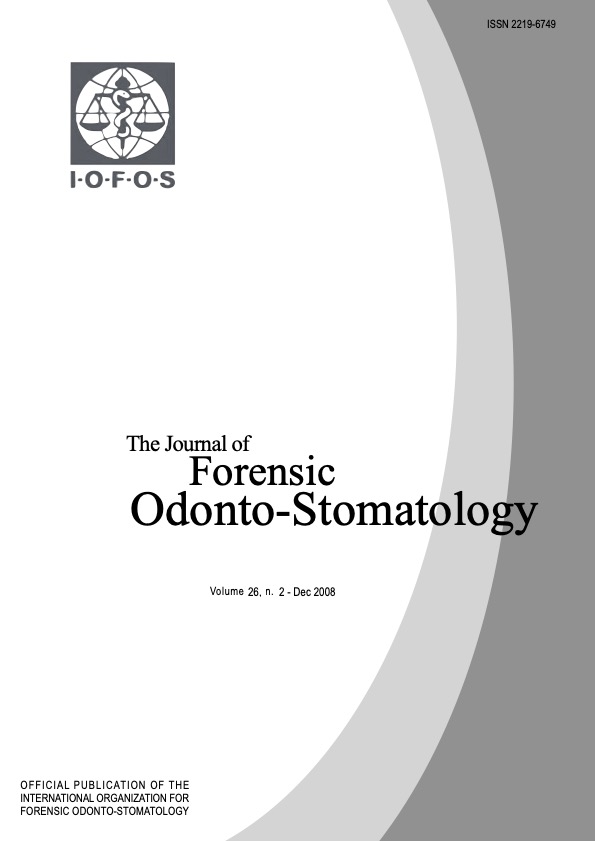How old I am? Age estimation in living adults:a case report
Abstract
Age estimation is a common task in forensic medicine. Odontologists are frequently involved in the age assessment of human remains or living juveniles. The need to estimate the age of living individuals is becoming more frequent, because of the increasing number of immigrants (illegal or otherwise) without acceptable identification documents and with missing or uncertain birth dates. Whereas age estimation in subadults is usually performed by methods based on the physiological growth of bones and teeth, in the case of living adults age determination is more difficult, because body maturation has come to an end and the most commonly used procedures in forensics on human remains are too invasive for the living individual.
The following case report aims at highlighting the difficulties of performing age estimation in the living adult and the importance of a multidisciplinary approach including forensic odontology: a middle-aged woman from Ethiopia who was supposed to be 62 years old (according to one set of documents), was removed from employment lists as she had reached the retirement age for Italy. However another set of documents indicated a younger age (46 years). Hormonal dosage of E2 (17-β estradiol) and FSH (Follicle Stimulating Hormone) showed an age close to the begininng of menopause. An experimental dental method, based on the decrease of canine pulp chamber with age, was performed in order to obtain more information: the result was an estimation of a 47-57 age range. Combined results suggested that it was more likely that the actual age of the woman was closer to 46 than to 62.

